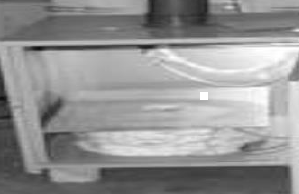Deposited Lead Sulfide Thin Film on Substrate with Chemical Spray Pyrolysis Technique
Keywords:
Lead Sulfide, Chemical Spray Pyrolysis, Thin Film on SubstrateAbstract
Lead sulfide (PbS) thin films have been deposited onto glass and polymide (PI) substrates at 300 0C with chemical spray pyrolysis (CSP) technique. Effects of substrate types on the structural properties of the films were studied. Sets of experiments were conducted to optimize the deposition of PbS films with appropriate deposition parameters. To evaluate the melting point temperature of a PI substrate, thermal studies were performed using a Differential scanning calorimeter. The deposited films were analyzed with X-ray diffraction, energy dispersive X-ray and atomic force microscopy to determine their structural properties. DSC measurement confirmed that the PI material has a glass transition temperature (Tg) of approximately 311°C and has no melting peak. X-ray diffraction patterns reveal that the films exhibit the cubic rock salt (NaCl) type structure. PI substrate exhibited the larger roughness than that for the glass because of large particles adsorbed on the PI substrate.
Downloads
References
D. Kumar, G. Agarwal, B. Tripathi, D. Vyas, and V. Kulshrestha, ―Characterization of PbS nanoparticlessynthesized by chemical bath deposition,‖ J. Alloys Compd., vol. 484, no. 1–2, pp. 463–466, 2009.
L. Raniero, C. L. Ferreira, L. R. Cruz, A. L. Pinto, and R. M. P. Alves, ―Photoconductivity activation in PbSthin films grown at room temperature by chemical bath deposition,‖ Phys. B Condens. Matter, vol. 405, no. 5,pp. 1283– 1286, 2010.
M. Sharon, K. S. Ramaiah, M. Kumar, M. Neumann-Spallart, and C. Levy- lement, ―Electrodeposition of leadsulphide in acidic medium,‖ J. Electroanal. Chem., vol. 436, no. 1–2, pp. 49–52, 1997.
S. Kumar and R. Chandra, ―INFLUENCE OF LASER FLUX DENSITY ON THE SURFACEMORPHOLOGY OF LEAD SULPHIDE THIN FILMS.,‖ Chalcogenide Lett., vol. 6, no. 6, 2009.
H. H. Afifi, S. A. Mahmoud, and A. Ashour, ―Structural study of ZnS thin films prepared by spray pyrolysis,‖Thin Solid Films, vol. 263, no. 2, pp. 248–251, 1995.
F. Kessler and D. Rudmann, ―Technological aspects of flexible CIGS solar cells and modules,‖ Sol. Energy,vol. 77, no. 6, pp. 685–695, 2004.
A. N. Tiwari, A. Romeo, D. Baetzner, and H. Zogg, ―Flexible CdTe solar cells on polymer films,‖ Prog.Photovoltaics Res. Appl., vol. 9, no. 3, pp. 211–215, 2001.
M. G. Faraj and M. Z. Pakhuruddin, ―Deposited lead sulfide thin films on different substrates with chemicalspray pyrolysis technique,‖ Int. J. Thin Film. Sci. Technol., vol. 4, no. 3, p. 215, 2015.
T. Sall, M. Mollar, and B. Mar’i, ―Substrate influences on the properties of SnS thin films deposited bychemical spray pyrolysis technique for photovoltaic applications,‖ J. Mater. Sci., vol. 51, no. 16, pp. 7607–7613, 2016.
D. Perednis and L. J. Gauckler, ―Thin film deposition using spray pyrolysis,‖ J. electroceramics, vol. 14, no.2, pp. 103–111, 2005.
S. M. Sabnis, P. A. Bhadane, and P. G. Kulkarni, ―Process flow of spray pyrolysis technique,‖ J. Appl. Phys.,vol. 4, no. 5, pp. 7–11, 2013.
P. S. Patil, ―Versatility of chemical spray pyrolysis technique,‖ Mater. Chem. Phys., vol. 59, no. 3, pp. 185–198, 1999.
A. Gupta, D. K. Pandya, and S. C. Kashyap, ―Thin fluorine-doped tin oxide films prepared using an electricfield-modified spray pyrolysis deposition technique,‖ Jpn. J. Appl. Phys., vol. 43, no. 12B, p. L1592, 2004.
K. O. Ukoba, A. C. Eloka-Eboka, and F. L. Inambao, ―Review of nanostructured NiO thin film depositionusing the spray pyrolysis technique,‖ Renew. Sustain. Energy Rev., vol. 82, pp. 2900–2915, 2018.
M. Marin, F. Potecacsu, O. Potecacsu, and F. B. Marin, ―Image Analysis Software for PorosityMeasurements in Some Powder Metallurgy Alloys,‖ in Advanced Materials Research, 2017, vol. 1143, pp.103–107.
B. Godbole, N. Badera, S. B. Shrivastav, and V. Ganesan, ―A simple chemical spray pyrolysis apparatus forthin film preparation,‖ Jl. Instrum. Soc. India, vol. 39, no. 1, pp. 42–45, 2009.
H. Hartnagel, Semiconducting transparent thin films. CRC Press, 1995.
H. Gleskova and S. Wagner, ―Amorphous silicon thin-film transistors on compliant polyimide foil substrates,‖IEEE Electron Device Lett., vol. 20, no. 9, pp. 473–475, 1999.
C. Guillen and J. Herrero, ―Electrical contacts on polyimide substrates for flexible thin film photovoltaicdevices,‖ Thin Solid Films, vol. 431, pp. 403–406, 2003.
M. Z. Pakhuruddin, K. Ibrahim, A. A. Aziz, and others, ―Thermally evaporated thin film microcrystallinesilicon solar cells on polyimide substrate with multiple light trapping schemes,‖ Optoelectron. Adv. Mater.Commun., vol. 8, no. 3–4, pp. 255–259, 2014.

Downloads
Published
How to Cite
Issue
Section
License

This work is licensed under a Creative Commons Attribution 4.0 International License.
Current Clinical and Medical Education













